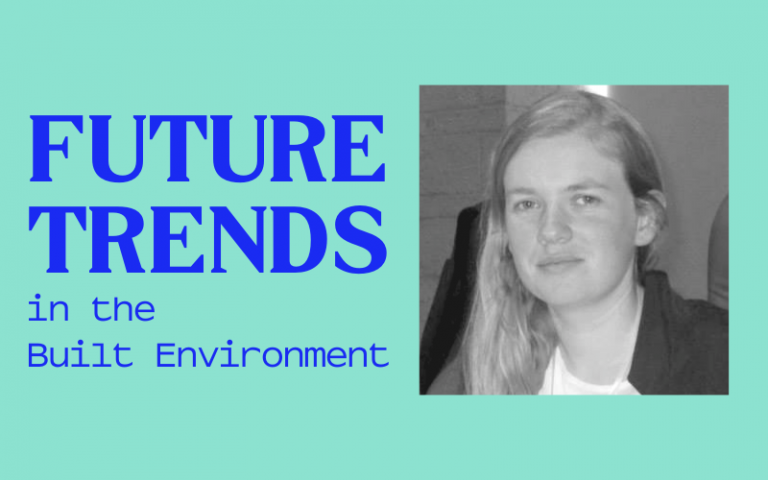Future Trends with Dr Neave O’Clery
8 February 2021
Future Trends is a series of interviews with researchers at The Bartlett to hear their take on future trends and developments for the built environment in 2021.

This week, we spoke to researchers across The Bartlett Faculty of the Built Environment to find out their predictions for future developments and trends in 2021.
Today we’re hearing from Neave O’Clery, Associate Professor in Applied Urban Sciences at The Bartlett Centre for Advanced Spatial Analysis. Originally from Dublin, Neave was previously a Senior Research Fellow at the Mathematical Institute at the University of Oxford, and prior to that a Fulbright Scholar and Postdoctoral Research Fellow at the Center for International Development at the Harvard Kennedy School following her PhD (mathematics) at Imperial College. Neave is also founder and Editor in Chief of Angle, an online journal focusing on the intersection of policy, politics and science since 2009. Her current research focuses on data and network modelling of economic development and urban systems.
Which trend(s) do you see developing in your area or discipline?
In recent years, the integration of social science and data science has deepened, and these linkages have begun to bear fruit. What has particularly evolved rapidly over the last two years or so is the development of collaborations of computer scientists and social scientists, focused on tackling foundational questions derived from the social science literature.
For example, urban mobility and transport analysis now routinely deploys massive data sets containing details of the movement of the millions of people. Analysis of informal housing and estimates of poverty in remote locations rely on satellite data. It is these multi-disciplinary, large scale and ambitious projects that has opened up new avenues of research on topics previously stymied by low quality or absent data, and particularly research concerning developing countries.
What you predict to become a focus in the coming year?
2021 in the urban sciences is likely to be dominated by an emerging debate about the future of cities in a post-COVID world. Scholars are asking whether the cities of yesterday are fit for the new ways of living characterised by a sustained shift towards more localised shopping and service provision, reduced commutes and a dramatic increase in working from home extending far beyond COVID-19 lockdowns.
New work will look at local inequalities and inaccessibilities at a highly granular spatial scale, deploying new modes of data capture and analysis. Moving beyond understanding the effects of COVID-19 on how we live, the focus has shifted to what tomorrow looks like and how we can support this transition.
 Close
Close

